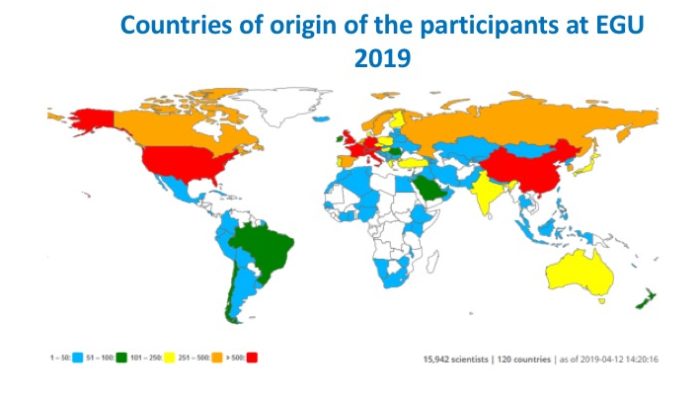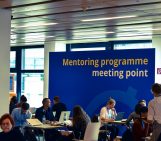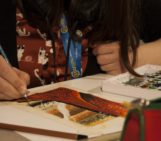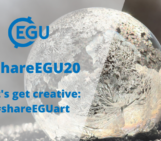
On 19 March EGU announced that it has cancelled the physical EGU General Assembly 2020 in Vienna, Austria. We spoke to the Union President Alberto Montanari and Programme Committee Chair Susanne Buiter to get some more information about what this means, how this decision was made and what comes next.
Hello Alberto and Susanne, thank you for answering my questions. Today we found out the EGU General Assembly 2020 will not take place in Vienna. How did you come to this decision?
Alberto: The EGU executives, Council and Programme Committee have closely followed the situation since the crisis first began in China. Unfortunately, I have a very personal perspective from Italy, the first European country that was heavily impacted by COVID-19. EGU has taken the opportunity to get first-hand information about the coronavirus and has been fortunate to have the support of top virologists at the international level. We made the decision by following the protocols for managing international emergencies and by considering the implications on public health, social security and science itself. I have no doubt that EGU made the right decision at the right time. By the way, #EGU20 will not disappear — this is important to say.
Since the conference cannot run physically, what are your plans for the General Assembly now?
Alberto: It is important that we minimise the impact on science of COVID-19, because impacting science means impacting humanity as a whole. EGU, like its sister associations, has a responsibility to make sure that science does not slow down. During this global emergency we need to make science more unified than ever. Therefore, even though the physical meeting in Vienna is cancelled, many of the activities that we planned for the GA will go on, with innovative solutions for virtual and green networking.
Susanne: I totally echo this. EGU is committed to ensuring that the science that was submitted to the General Assembly 2020 can be shared freely online. We are currently formulating a concept that will allow authors to upload presentation materials and receive feedback on those. We are also looking into ways that will support live discussions to bring a networking component to our online activities. During these challenging times, I am hoping that something good may come from the situation by allowing us to move forward faster with plans we are already developing for reducing the environmental impacts of the General Assembly. Please stay tuned; we hope to release more information within the next week.
The situation with the COVID-19 outbreak has been critical now for several weeks, with many other conferences already cancelling or postponing. Why did it take longer for EGU to come to this decision about the General Assembly?
Alberto: As geoscientists, many of us have insight regarding how to manage emergencies. Important decisions have to be made at the right time and be clearly and rigorously implemented. Before making a final decision on the General Assembly, EGU had to make sure that a clear plan was in place to minimise negative implications and maximise opportunities for our members. There still are several unknowns about COVID-19, in particular the duration of the emergency at the global level. While institutions have a responsibility to introduce appropriate restrictions, overly restrictive limits to social activities can have an impact on humanity as a whole. EGU does not want science slowing down, and we therefore wanted to get the information necessary to make the most appropriate decision, with the support of international experts.
Obviously the COVID-19 outbreak is having major impacts on societies around the world. What impact do you think it is having on science and scientific research?
Alberto: This is not an easy question. There are many things that we still don’t know about COVID-19. I am sure the scientific community will be able to unify itself and react in the best way; I am very positive about that. Science will be able to benefit from modern technologies to stay connected and progress as needed. Negative situations always have positive implications. We need to maximise the opportunities this emergency is offering. I am very happy to see the start of a new and virtual form of international collaboration.
Does this change mean that the General Assembly will run online from now on?
Susanne: In my view, a large meeting like our General Assembly serves different purposes. The main one is to offer geoscientists the opportunity to learn about new developments and to share exciting scientific results. These are aspects that we could partially bring online. However, where I have struggled is how to offer the same networking environment in a virtual sense. With more than 16,000 participants in 2019, the General Assembly is a great place to make new acquaintances and meet with colleagues for discussions. To further enable this, last year we introduced Networking Breaks.
That said, the current situation does offer opportunities to explore new ways of meeting to share science. I hope our plans for bringing aspects of the General Assembly 2020 online will teach us what works well, and what we can consider continuing in the future. I think there is a clear networking need for in-person conferences, but we should use this year’s experiences to reduce the environmental impacts of large conferences like our General Assembly.
What are the next steps for moving aspects of the General Assembly online, and when should we expect new information?
Susanne: Really soon, I hope! Please do not pin us down on this, but we hope to start providing more detailed information within the next week. With the Programme Committee and our conference organiser Copernicus, we are working hard on implementing a concept that will allow us to bring our scientific sessions online in a novel way.
We are inviting abstract authors to upload presentation materials with their abstracts. This can be anything: a figure, a couple of slides, an animation, a poster, or anything else that would highlight aspects they wish to share about their work. These will then be open for feedback and discussion, and we are exploring whether we could even do this live. It will be a large pilot experiment, and I hope authors and conveners will join us in finding our way forward to new green meeting opportunities. We are also investigating whether we could bring some of our union-wide sessions online and what we else can offer as activities beyond the week of the General Assembly.
I would like to take this opportunity to thank the EGU Programme Committee for their work in bringing the General Assembly activities online, as well as the many conveners and authors who have contacted us with suggestions and ideas. These have all been so helpful!
Interview by Hazel Gibson, EGU Communications Officer



